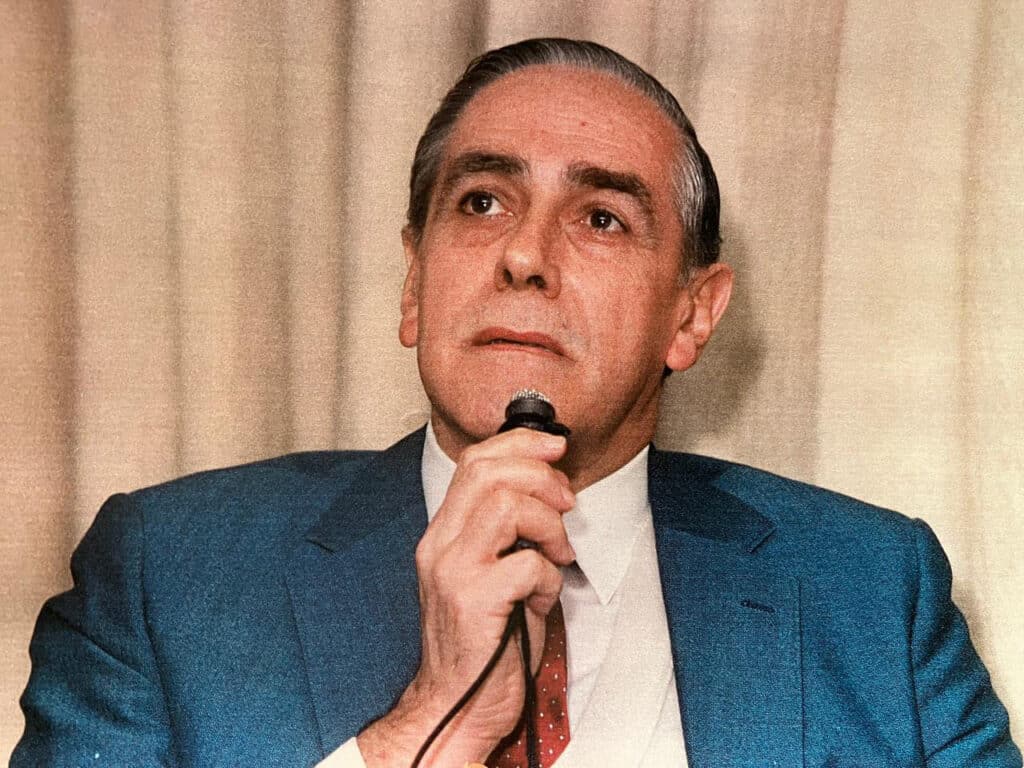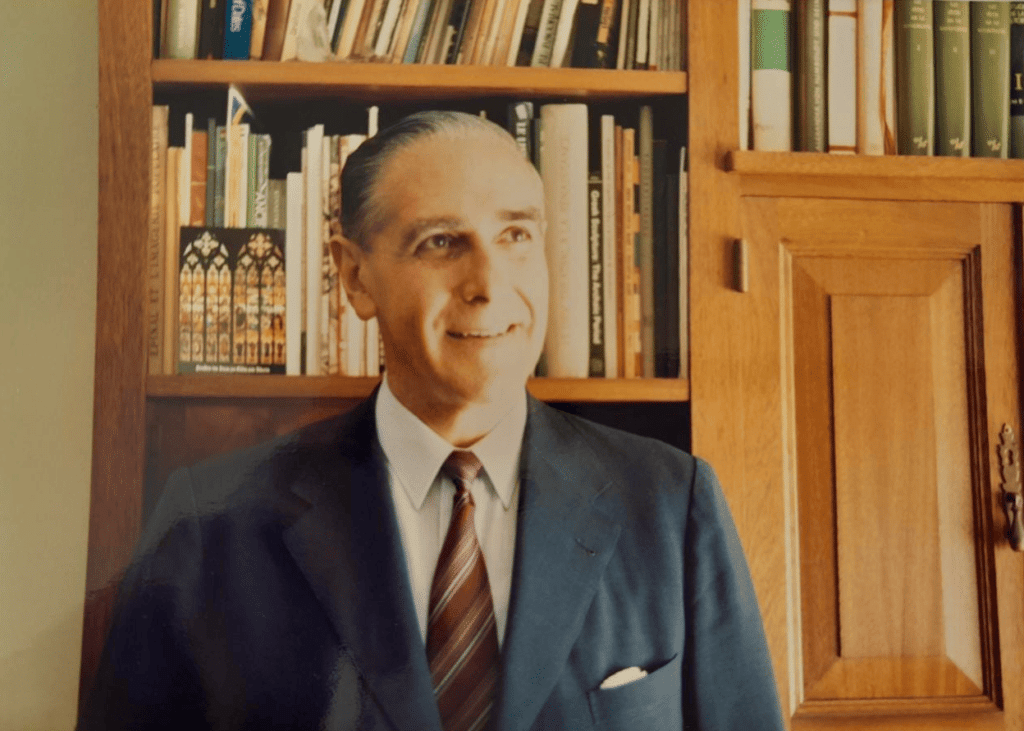Con alegría quisiéramos compartir que el Instituto de los Padres de Schoenstatt en Argentina presentó a principios de este año al Arzobispo de Buenos Aires Monseñor Jorge Ignacio García Cuerva la solicitud de apertura del proceso de beatificación de Germán Orduna (1926–1999). Esta decisión llegó tras haber decidido la revisión de la vida y de la obra de quien fuera un laico, padre de familia y académico destacado.
La Iglesia de los tiempos que vivimos, demanda la santidad de la vida diaria plasmada en laicos comprometidos. En este caso, un miembro de la Obra de Familias de Schoenstatt de Buenos Aires.
Un regalo de Schoenstatt para la Iglesia
Hay dos razones decisivas para llevar adelante esta causa: porque aspiramos a que sea un regalo de Schoenstatt para la Iglesia, y porque siendo muchas las voces – de muy diversos ámbitos – que expresan hechos relacionados con una vida de santidad de Germán Orduna, se ha conformado un conjunto de testimonios que apuntan con claridad a la fama de santidad que fue gestándose desde el momento de su muerte y va creciendo en el tiempo.

Su fama de santidad se centra en su amor a Jesús Sacramentado y a la Virgen María, su principal sostén de la vida diaria y en su empeño consciente y constante en vivir coherentemente la fe cristiana, como esposo, padre ejemplar y profesional dedicado a la docencia y la investigación, que se concentró en la Universidad de Buenos Aires (UBA) y en el Consejo Nacional de Investigaciones Científicas y Técnicas (CONICET). En ambas instituciones, la filología medieval española fue el centro de sus estudios a través de los cuales no perdía la oportunidad para transmitir su testimonio de fe, así como los valores encarnados en la épica del Cid Campeador.
La entrega sin reservas al prójimo, fuese colega, alumno o becario inspirada en la palabra oportuna a la luz del Espíritu Santo, marcó con frecuencia, a quienes lo conocieron, un antes y un después en sus vidas.
¿Quién era Germán Orduna?
German Orduna nació en San Martín (Provincia de Buenos Aires) en 1926. Estudió en la Escuela Normal de Profesores Mariano Acosta, en la cual empezó a dar clases a los 17 años. Se graduó como Profesor de Filosofía y Letras (UBA) y en 1952 partió a la ciudad de Salamanca donde se licenció en Filología Hispánica. Estudió también Romanística en Alemania y luego volvió a Argentina y se casó en 1965 con Lilia Elda Ferrario.

Fue hasta su partida en 1999, profesor de Literatura Española Medieval en la UBA e investigador del CONICET donde fundó el Seminario de Edición y Crítica Textual (SECRIT). En ambos lugares, forjó una intensa labor por décadas, educando jóvenes y desarrollando su disciplina con una gran paternidad para con los suyos y orientando el pensamiento hacia la búsqueda de la verdad basada en la Fe. En 1992 fue nombrado académico correspondiente en Argentina de la Real Academia Española.
Tuvo una intensa vida de oración y devoción hacia la Virgen del Carmen y a Nuestra Señora de Schoenstatt, de cuyo Movimiento formó parte desde 1980, y una profunda unión a Jesús Sacramentado, que como Adorador se profundizó en la Basílica del Santísimo Sacramento de Buenos Aires.
Su vida, centrada en la literatura medieval española, lo llevó a vivir la caballerosidad como así también el temple cristiano ante la adversidad, la cual se fortaleció con fe y esperanza tanto en su patria terrenal como en la celestial.
La frase, con la cual se sintió identificado toda su vida hasta el final; su ideal:
“Esté donde esté, estaré adorando al Santísimo”

